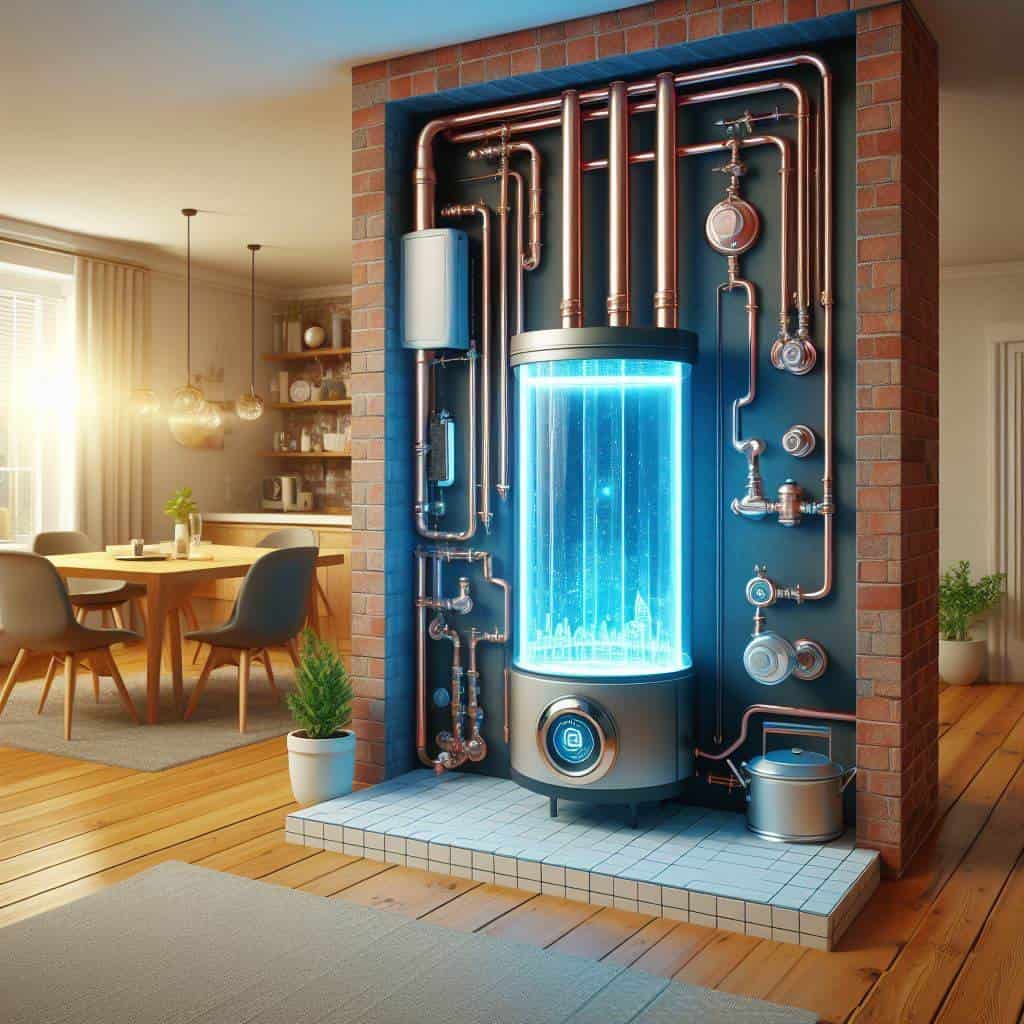
Rare earths, minerals, and lithium: we all came to familiarize ourselves with them. We know how important they are for making batteries but also how difficult sourcing them is. NEStore, an innovative solution that can store electricity in hot water for months, proves that energy storage can exist without rare minerals, too.
Why this is important:
Easy-to-install, cheap, and smart solutions can help households better manage their energy, especially to stash power for later use. Newton Energy Systems is working in that direction.
The Delft-based Newton Energy Solutions (NES) is behind this idea. As a spin-off of the Dutch Organisation for Applied Scientific Research (TNO), it results from a decade of testing and experimenting within the institute’s energy storage investigation group. “The end conclusion was: you can do anything technologically, but who will pay for it? Some technologies are expensive, others are too dangerous,” says Pavol Bodis, CEO of the company. Water and steel can do the job storing electricity safely and at a lower cost.
Like a conventional water boiler, NEStore converts electricity – from solar panels or the grid – into heat, storing it without heat losses in water for weeks. When discharged, the system delivers hot water. Providing everyone with cheap and green energy is the company’s mission. Active for two years now, NES has installed fifteen of its devices for commercial customers. NES is taking steps to live up to its proposition. Their standard 20 kWh unit takes less than 2 hours to install and costs €5,000, excluding taxes. Home use is the primary application envisioned by the TNO spinoff for NEStore, but any place where hot water is needed could enjoy its benefits. Hotels, hospitals, and sports centers could also be potential use cases.
This is an article from our magazine IO Next: Energy Storage. In the puzzle of our new energy system, balancing supply and demand for energy is the greatest challenge. And that’s why we dedicate this magazine to that crucial puzzle piece.

Stashing power as brewing an espresso
Bodis draws a practical metaphor to explain the functioning of NEStore. “It’s a flow-through heater, comparable to an espresso coffee machine. During the charging phase, water enters the system and gets warmed up, and when discharging, the user draws this hot water.” From room temperature, the system warms the water up to 110 degrees Celsius, well over the threshold reached by conventional boilers. Besides, it has six to eight times the capacity of a regular boiler. A thinner insulation system plays its part, but, most importantly, the higher water temperature allows for stashing more energy within the same volume.
Although shying away from defining NEStore as a battery – meaning an electrical one – the device still stores thermal energy for weeks. Whereas conventional boilers rapidly lose heat — up to 30 percent in 24 hours – Newton Energy System’s tech can maintain it for weeks. This is possible thanks to the vacuum insulation system, which minimizes heat losses.
While developing the prototype, producing the system with the best possible insulating material and the design became the first concern of NES. The team stubbornly insisted on its idea, despite the many talks with other industry actors suggesting that water would get quickly cold anyway. The result is a two-vessel design, with a layer of glass foam between the steel foils and a vacuum valve that insulates the system. “Our system loses about one Celsius degree per day, and it’s a world of difference compared to conventional solutions,” Bodis emphasizes.


Not a battery, not a boiler
On its website homepage, NES explicitly says that the system is “not a battery, not a boiler”. Despite the explanation, the conundrum arises again, but Bodis knows how to solve it.
“NEStore is not a battery in the sense of an electrical battery. In fact, we store electricity and turn it into heat when charging it, but we don’t turn heat into electricity when discharging. Unless you have temperatures over 250 degrees Celsius and want to turn it into steam, it is a nonsensical and dangerous concept for home use. In addition, NEStore is not a boiler. A boiler was invented to allow us to shower without drawing too much power from the grid. It doesn’t have the purpose of storing energy for longer periods of time,” he clarifies.
Flexibility
To provide cheap and green energy, NEStore charges when the rooftop solar panels (if available) are harvesting sunlight or when the quota of green electricity on the grid is high – usually when wind farms produce more. The heat storage system connects to the internet and runs its own software.
Furthermore, the system can adapt to usage patterns, recognizing the different parameters of a user profile. “Every household is different. The grandpa living alone might shower once every two days, and having a five percent state of charge is enough. A family with three teenagers might probably need a minimum of sixty percent. Boilers do what they need to, but they don’t have flexibility; they don’t have a brain, but NEStore does,” Bodis remarks.
Installing was also made easy. Two water connections – one for input and one for output – a socket and access to the internet network make setting up possible in less than three hours. “Besides being a sustainable solution, our system doesn’t have all the runaway problems electric batteries have,” says NES’ CEO.

Beyond home storage solutions
In addition to the 20 kWh system, the NEStore is also available in a 30 kWh version – costing €6,000, exclusive taxes. “For a lithium battery of the same capacity, the cost is around €25,000. That’s a different order of magnitude, although we only built a small number of units,” underlines Bodis.
As soon as the NEStore received the European certification, requests came from all over the globe, “except Antarctica”. The focus now is fully on the Netherlands, with the intent to follow installations closely. By the end of this year, NES aims to install 500 commercial units, hitting the thousand mark in 2025. In scaling up its game, the company is now raising funds.
If bringing affordable, clean power to everyone is the main driver of NES, there is more that decentralized energy storage can do. Bodis: “In the Netherlands and other countries, society cannot take further steps because the energy grid is full. Municipalities cannot build new buildings, a problem that is very felt here. Addressing the grid problem can enable us to tackle the housing problem, phase out fossil fuels, and work on energy poverty.”








